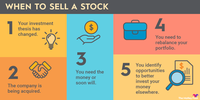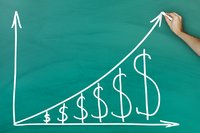CarMax (KMX 1.38%) is a publicly traded company, meaning anyone with a brokerage account can buy CarMax stock. CarMax is the largest used vehicle retailer in the U.S. and one of the largest operators of wholesale auctions for used vehicles. It's known for its no-haggle pricing, with salespeople receiving the same commission no matter what vehicle you buy. Its financing division finances roughly 43% of vehicles purchased through CarMax.
But CarMax has struggled recently as new car prices have dropped and the used car supply remains tight. Higher interest rates have also put pressure on Carmax's sales.
Despite these challenges, could CarMax stock be a buy? Keep reading to learn about who should consider investing and who should stay on the sidelines.

How to buy CarMax stock
How to buy CarMax stock
Because CarMax is a publicly traded company, anyone can buy shares. To buy stock in CarMax or any other company that's listed on a major U.S. stock exchange, follow these steps:
- Open a brokerage account. If you want to buy shares of an individual company or an exchange-traded fund, you'll need to open a brokerage account. You can choose a taxable brokerage account if you want to withdraw money without penalty at any time or an individual retirement account (IRA) if you're investing for the long term. You can easily open either type of account in just a few minutes at most online brokerages.
- Figure out your budget. Investing in any individual stock is risky. If you're a new investor, consider starting out with an S&P 500 ETF or another fund that offers automatic diversification so you can spread the risk across many different companies. Once you have a diversified portfolio, you can add individual stocks like CarMax. Generally speaking, you don't want any individual stock to make up more than 5% to 10% of your total investments.
- Do your homework. Before you place an order for CarMax stock, make sure you've done your homework and have a solid investment thesis for why CarMax is a buy. For example, maybe you believe the stock is undervalued or that it has a wide economic moat. You should also look through its annual report and have a solid understanding of how CarMax makes money and the challenges that lie ahead.
- Place an order. To place an order, you'll need to log into your brokerage account and enter CarMax's ticker, KMX. You'll need to specify how many shares you're buying. Since many top brokers now allow you to trade fractional shares, you may be able to specify a dollar amount and receive the corresponding percentage of a share. For example, if CarMax shares were trading at $75, but you only wanted to invest $25, you'd receive 33.33% of a share. Before placing a trade, you'll also need to indicate whether you're placing a market order or a limit order. A market order directs your broker to place the order right away; a limit order instructs the broker to place the order only at a specified price. Finally, you'll place your order to become a CarMax shareholder.
Stock
Should I invest?
Should I invest in CarMax stock?
Automotive stocks like CarMax are cyclical in nature. When consumers have less money to spend, they'll often keep their older vehicles longer. Because CarMax finances almost half of the vehicles it sells, the company is also vulnerable to loan losses if customers can't afford their car payments.
Investing in CarMax could make sense if:
- You're comfortable investing in cyclical stocks and would stay the course during a downturn.
- You believe that CarMax's heavy investment in its omnichannel platform gives it a wide economic moat.
- You already own a diversified portfolio and want more exposure to consumer discretionary stocks.
- You believe CarMax can grow its market share for used car sales.
Investing in CarMax is best avoided if:
- You believe high interest rates will stick around for a long time and will continue to put pressure on CarMax sales.
- You're worried that a recession is imminent.
- You predict that new car prices will hold steady or decrease, prompting customers to favor new vehicles over used ones.
- You're seeking investment income and know that CarMax has never paid a dividend.
Is it profitable?
Is CarMax profitable?
CarMax is profitable, but it's experienced some headwinds recently. The used car retailer reported net earnings of $50.3 million in the fourth quarter of fiscal 2024, a year-over-year drop of 27.3%. The company reported diluted net earnings per share of $0.32, down from $0.44 the previous year.
Management said that "vehicle affordability challenges" affected its latest results, citing inflationary pressures, high interest rates, stricter lending standards, and low consumer confidence.
Combined retail and wholesale used vehicle unit sales dropped by 0.9% from 2023's fourth quarter. The company also bought about 11% fewer vehicles from customers and dealers in the fourth quarter of 2024 than it did in the final quarter of 2023.
Total gross profit was $586.2 million for the quarter, a 4.1% drop from the previous year. Much of the drop was attributed to declining wholesale vehicle gross profit, which tanked by 9.4%.
One bright spot for CarMax was its financing division, which saw its income jump by 18.9%, or $147.3 million, due to a year-over-year drop in provisions for loan losses and higher average managed receivables.
CarMax has set a long-term goal of reaching 2 million in annual retail and wholesale vehicle sales. However, it pushed back its target for achieving that target from fiscal 2026 to fiscal 2030.
Does it pay a dividend?
Does CarMax stock pay a dividend?
CarMax has never paid a dividend, and investors shouldn't expect this to change anytime soon. According to its 10-K filing, the company intends to retain earnings for operational costs and to expand its geographic reach. The report states that management doesn't expect to pay a dividend in the foreseeable future.
Exchange-Traded Fund (ETF)
ETFs with exposure
ETFs with exposure to CarMax
If you're not sure about buying individual shares of CarMax, you could invest in an exchange-traded fund (ETF) with CarMax exposure. An ETF is a collection of many different stocks that trades as a single security on stock exchanges. The advantage is that you spread your risk across many companies, so you're less likely to sustain steep losses. There are many different ETFs with CarMax exposure. Here are a few to consider:
- First Trust S-Network E-Commerce ETF (NYSEMKT:ISHP): The ETF invests in e-commerce stocks with a minimum market capitalization of $100 million. CarMax is included in its 61 holdings and had a weighting of 1.62% on May 15, 2024. The ETF's expense ratio is 0.60%. That translates to fees of $60 if you invest $10,000 in the fund.
- Invesco S&P 500 Equal Weight Consumer Discretionary ETF (NYSEMKT:RSPD): The fund invests in the consumer discretionary stocks represented in the S&P 500 index and assigns each company an equal weighting. CarMax is among its 54 holdings. The fund has a 0.40% expense ratio, which means you'd pay $40 in fees on a $10,000 investment.
- SPDR S&P Retail ETF (XRT 1.57%): The ETF invests in an index of retail stocks and has 79 holdings as of this writing. Automotive retail stocks, including CarMax, represent about 21% of the fund's holdings. The expense ratio is 0.35%. If you invested $10,000, you'd pay $35 in fees.
Will CarMax stock split?
Will CarMax stock split?
Carmax split its stock once in March 2007, after its board of directors voted on a 2-for-1 stock split. A company typically splits its stock to make its share price more affordable for retail investors. Given that Carmax shares were trading for less than $75 in mid-May 2024, an upcoming stock split is unlikely.
The bottom line
The bottom line on investing in CarMax
CarMax has made significant investments in its omnichannel platforms, allowing customers to handle much of the process of shopping for a vehicle, obtaining financing, and trading in their vehicle online. Its no-haggle shopping is another way it differentiates itself from other used car retailers.
While CarMax has a unique business model, it will continue to deal with the challenges other used car retailers face, including higher interest rates and inflation, both of which could cause potential customers to hold off on trading in their vehicles. If you want to invest in CarMax, be prepared to hold the stock for the long term.
Investing in CarMax FAQs
Can you buy stock in CarMax?
Yes, you can buy stock in CarMax because it's a publicly traded company. To buy shares, you'll need to open and fund a brokerage account.
Is CarMax a good investment?
CarMax could be a good investment if you believe used car sales will rebound and interest rates will eventually drop. However, investors should be aware that CarMax is a cyclical business, which means it's hit hard during a recession or times when consumers have less discretionary income.
Who is the largest shareholder of CarMax stock?
The largest institutional shareholder of CarMax stock is the Vanguard Group, which owns 11.46% of outstanding shares. CarMax CEO William Nash is the largest individual shareholder, with almost 187,000 shares as of mid-May 2024.
What is the stock ticker for CarMax stock?
The stock ticker for CarMax stock is KMX. The stock trades on the New York Stock Exchange.


















































































































































































































































